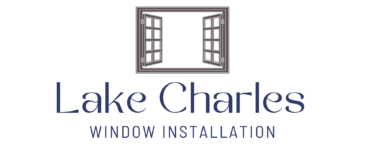Achieving energy efficiency requires more than just one pane of glass. Look for double or triple-pane windows to maximize energy savings.
Investing in energy-efficient windows will save you a significant amount of money on your utility bills each month. Ensure your new windows are professionally installed to receive maximum benefits.
Energy Efficiency
Energy-efficient windows can reduce energy waste and keep your home cool and comfortable all year round. This makes them a good investment that will pay for themselves in lower utility costs over time.
A window’s efficiency can be measured by its R-value, which measures the resistance of the glass and frame to heat flow. The higher the R-value, the more efficient the window. The best energy-efficient windows will also have a low-emissivity coating that helps to cut down on UV rays and prevent condensation.
A window’s energy-efficiency can also be improved by incorporating argon, which is a colorless, odorless, and nonreactive gas that helps to add even more insulating properties to the glass and frame. Look for windows that are ENERGY STAR Certified, which means they have been independently tested and verified by the National Fenestration Rating Council. Additionally, make sure to choose a reputable window dealer and installer to ensure your windows perform at the highest level.
Increased Home Value
There are many home improvement projects that can increase a property’s value. Window replacement is one of these projects. Adding energy efficient windows is not only cost effective but can help reduce energy bills as well. This is something that home appraisers take into account when assessing a property.
According to the Department of Energy, 25-30% of a home’s heat or cool air can leak through the windows. Old or poorly insulated windows can contribute to higher energy bills than necessary.
When choosing a new window, look for the “Energy Star” label. These windows have been independently tested to meet strict energy efficiency requirements set by the NFRC. They must use widely obtainable technologies that are offered by more than one manufacturer to qualify.
Also, consider choosing windows that have a Low-E glass coating. This helps prevent infrared and ultraviolet rays from entering the home, while allowing regular light to pass through. It can improve a window’s energy efficiency by up to 10%.
Long-Term Savings
Depending on your location and home type, the windows you choose and how well they are installed can have a significant impact on energy use. ENERGY STAR certified windows can shrink your energy bills by an average of 12 percent.
The biggest benefit of choosing Energy-efficient windows Lake Charles LA is the long-term savings you’ll realize on your utility bills. The resale value of your home is also an important factor to consider when investing in new windows. You’ll likely recoup at least 70% of the initial installation cost when it comes time to sell your home.
Low-quality windows allow heat to escape and let sunlight enter the house, which forces your heating and cooling systems to work harder to regulate the temperature. The best way to avoid these energy-wasting effects is to invest in high-quality Energy-efficient windows with a high R-value and Low-E coating. These windows will be able to prevent heat from escaping and protect your valuables from the sun’s harmful UV rays.
Increased Comfort
Enjoy your view with windows that open to let in fresh air and sunlight. If your windows are aging and in poor condition, it’s time to upgrade. New windows will not only look better, but they’ll also save energy.
Standard double-pane windows allow up to 75 percent of the sun’s heat into your home1. ENERGY STAR certified windows reduce “heat gain” without reducing visible light, so you get all the natural light your space needs without the uncomfortable summer heat.
The low-E coating on ENERGY STAR qualified windows reflects the sun’s rays, keeping your indoor temperature stable while blocking harmful UV rays. Additionally, our Intercept warm-edge spacer system reduces condensation buildup and edge-to-glass temperatures to keep your glass insulated for years to come.
